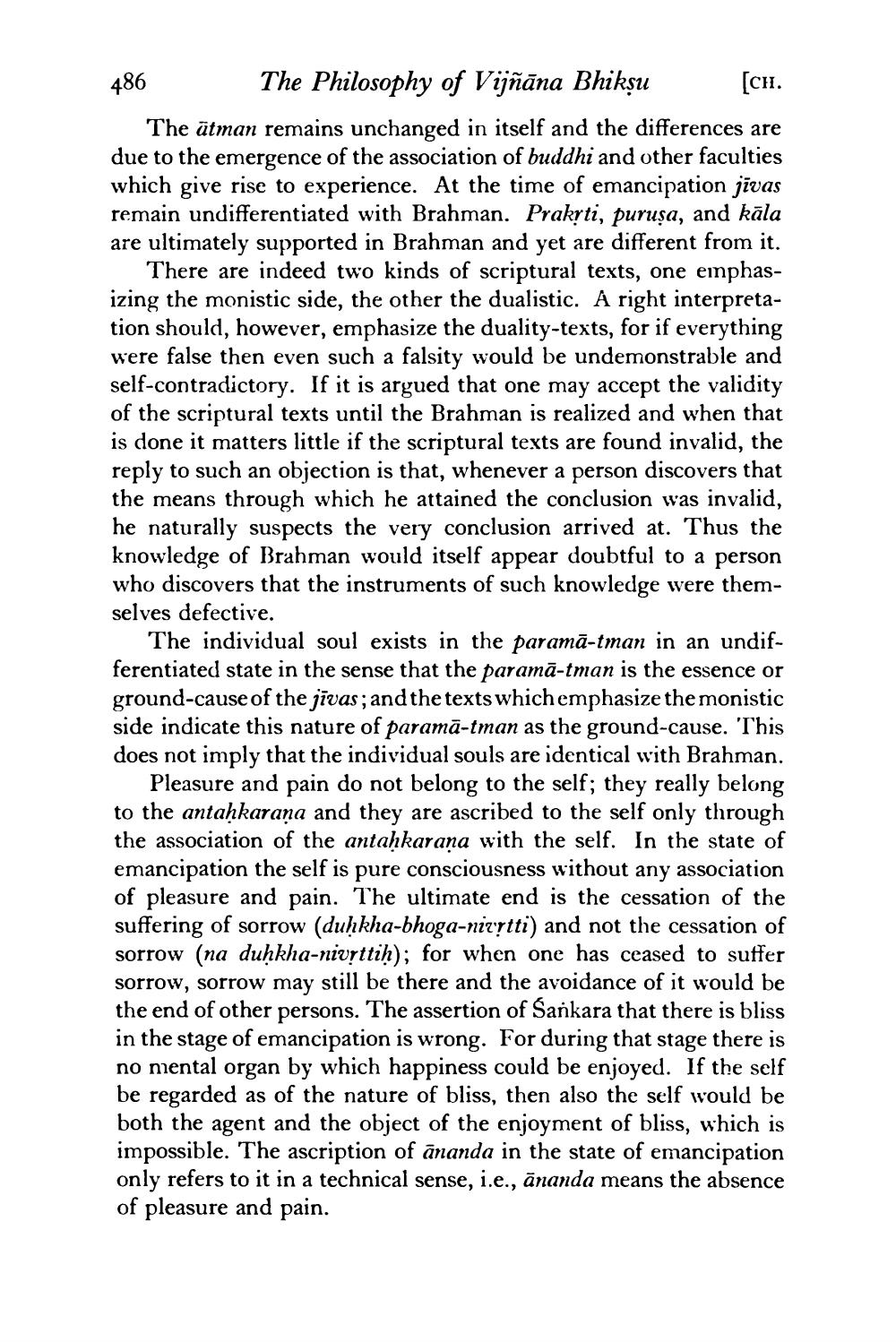________________
486
The Philosophy of Vijñāna Bhikṣu [CH. The ātman remains unchanged in itself and the differences are due to the emergence of the association of buddhi and other faculties which give rise to experience. At the time of emancipation jīvas remain undifferentiated with Brahman. Prakrti, puruṣa, and kāla are ultimately supported in Brahman and yet are different from it.
There are indeed two kinds of scriptural texts, one emphasizing the monistic side, the other the dualistic. A right interpretation should, however, emphasize the duality-texts, for if everything were false then even such a falsity would be undemonstrable and self-contradictory. If it is argued that one may accept the validity of the scriptural texts until the Brahman is realized and when that is done it matters little if the scriptural texts are found invalid, the reply to such an objection is that, whenever a person discovers that the means through which he attained the conclusion was invalid, he naturally suspects the very conclusion arrived at. Thus the knowledge of Brahman would itself appear doubtful to a person who discovers that the instruments of such knowledge were themselves defective.
The individual soul exists in the paramā-tman in an undifferentiated state in the sense that the paramā-tman is the essence or ground-cause of the jīvas; and the texts which emphasize the monistic side indicate this nature of paramā-tman as the ground-cause. This does not imply that the individual souls are identical with Brahman.
Pleasure and pain do not belong to the self; they really belong to the antaḥkarana and they are ascribed to the self only through the association of the antahkarana with the self. In the state of emancipation the self is pure consciousness without any association of pleasure and pain. The ultimate end is the cessation of the suffering of sorrow (duḥkha-bhoga-niz?tti) and not the cessation of sorrow (na duhkha-nivrttih); for when one has ceased to suffer sorrow, sorrow may still be there and the avoidance of it would be the end of other persons. The assertion of Sankara that there is bliss in the stage of emancipation is wrong. For during that stage there is no mental organ by which happiness could be enjoyed. If the self be regarded as of the nature of bliss, then also the self would be both the agent and the object of the enjoyment of bliss, which is impossible. The ascription of ananda in the state of emancipation only refers to it in a technical sense, i.e., ānanda means the absence of pleasure and pain.




